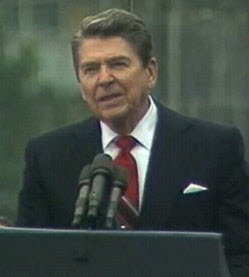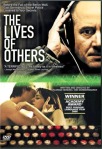Hello my name is Joseph and I lived almost 14 years in Berlin. The first time in 1987, when the Wall was still standing. I lived in an “occupied” house (aka “squat”) in Kreuzberg, directly next to the Wall. When I looked out my bedroom window I would see the guard in the watchtower direct his binoculars at me. I must say, after a while, it became totally “normal” for me, that there be a wall dividing a city. How ideological can people get, anyway? Utterly fascinating! I can think of some funny stories, like when we moved out of one of our flats we found it easier to throw our old sofa over the Wall than to just leave it for the Staatreinigung (city sanitation). There was already enough trash in that neighborhood, so why not simply get a gang of guys together and make a statement, “Weg mit dem Scheißding” [Get rid of the f-ing thing]. I had moved to Berlin after having studied German in Munich. What a contrast between Kreuzberg and Munich! Crass!!!
About 9 months later I returned to the U.S. and moved for 4 1/2 years to California. I’ll never forget that morning when the Wall “fell”: I came into work, and there was a 9-hour time difference between California and Germany. A German colleague came to me and asked, “Did you hear about the Berlin Wall?” And I countered, “No.” My curiosity was peaked. When he told me that the border points between East and West had been opened, and that there were people literally dancing on the Wall and partying in the streets, I at first looked at him like this was some sort of joke. Only after his serious convincing did I believe him, and promptly walked into my boss’s office and immediately requested vacation. I flew that evening with a flight on BA leaving just after work, and connected to Hamburg.
When I arrived in Hamburg, we were surprised because that City was filled with “Ossis” (nickname for East Germans), too. But, we were more interested in driving to Berlin. I have a picture of me sitting on top of a car in front of the Reichstag when we finally arrived in Berlin. It was like one huge street party, and whole city gone crazy with utter joy. I stayed a few days and had to go back to work.
Little did I know, that just a few years later, I would move there for most of my adult life! At a certain point, I met a girl from Berlin, whose boyfriend offered me a job in my field of specialization: IT for the travel industry. One year prior to this, I had married a girl from Hamburg (we’ve been divorced since 1998). So in 1992, I sold almost everything I owned and moved to Berlin. I lived there until 2004, so 12 1/2 year this time. It was AMAZING witnessing the transition and metamorphosis of a city. I’ll be happy to relate those special times, and I’m glad to have been there first hand twice to see history in the making: first, the “Fall”, then the “Transformation” that followed the initial euphoria. Stay tuned, friends. I’ll write more soon. Thanks! Joseph




